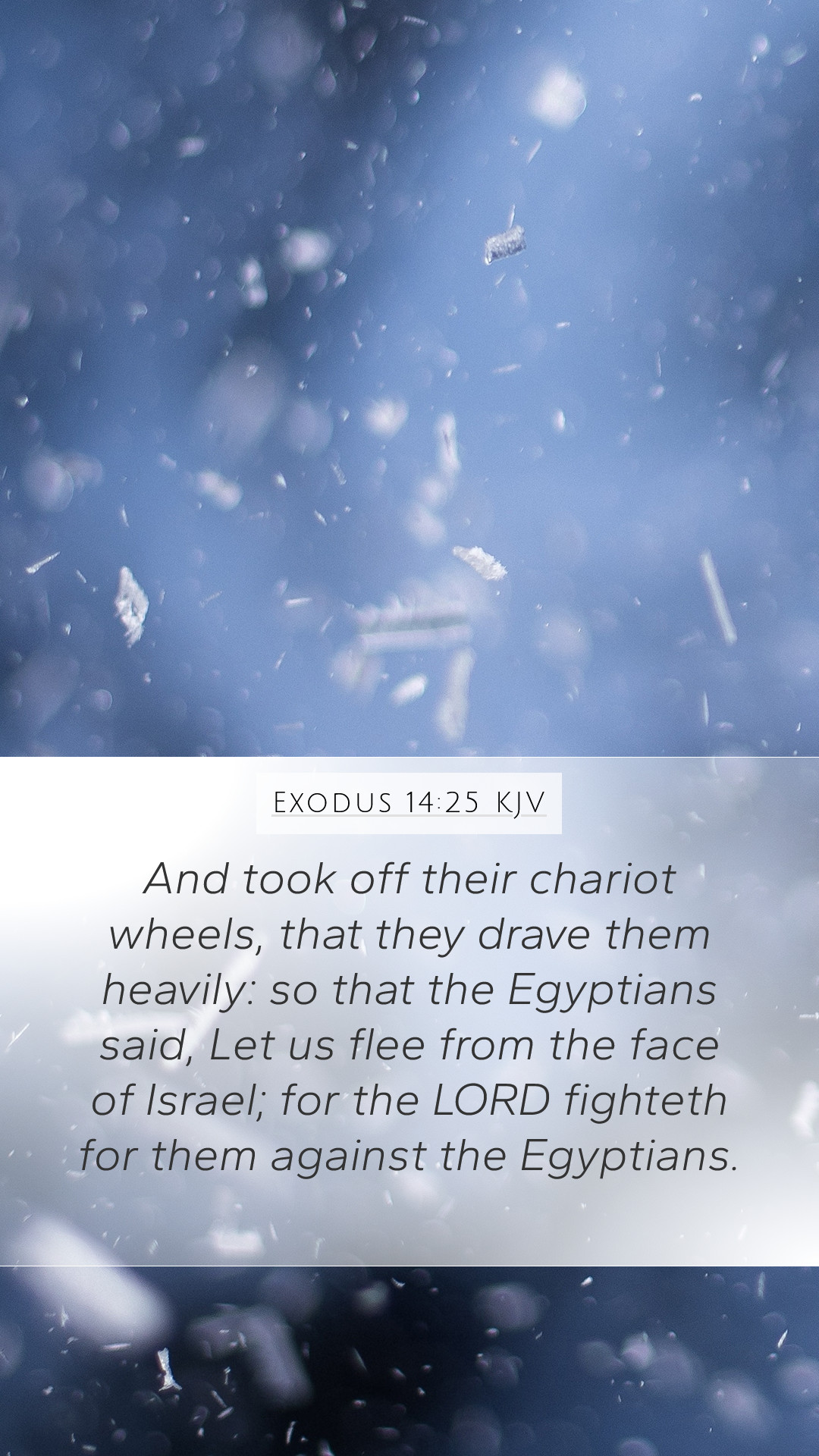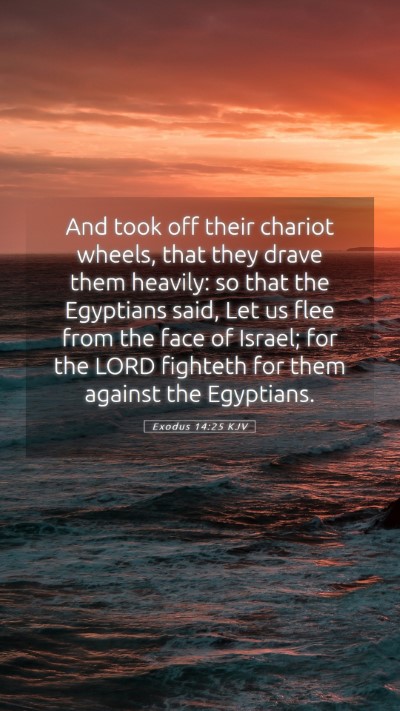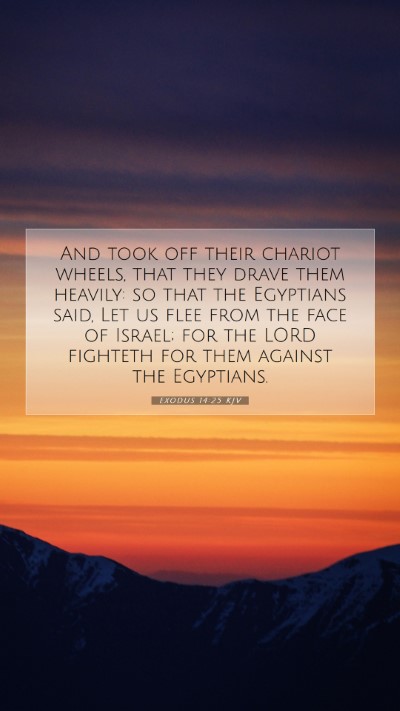Understanding Exodus 14:25
Exodus 14:25 states: "And took off their chariot wheels, that they drave them heavily: so that the Egyptians said, Let us flee from the face of Israel; for the Lord fighteth for them against the Egyptians."
Bible Verse Explanation
This verse depicts a critical moment during the Israelites' escape from Egypt, highlighting God’s intervention on their behalf. The removal of the chariot wheels by divine intervention caused significant hindrance to the pursuing Egyptians, demonstrating that God was fighting for Israel. This profound moment underscores themes of faith, liberation, and divine power.
Bible Verse Interpretation
Commentators like Matthew Henry, Albert Barnes, and Adam Clarke provide valuable insights into this passage:
- Matthew Henry: Henry notes that this event illustrates divine justice and the downfall of the pursuing enemies. He emphasizes that the Egyptians' realization of the Lord's fight against them alerts them to their imminent defeat.
- Albert Barnes: According to Barnes, the hindrance of the chariot wheels symbolizes the loss of control experienced by those who oppose God’s purpose. This emphasizes the impotence of human efforts against divine plans.
- Adam Clarke: Clarke elaborates on the mechanics of divine intervention, suggesting that the wheels' removal signifies God’s active involvement in the deliverance of His people, thus invoking fear among the Egyptians.
Biblical Exegesis
Understanding Exodus 14:25 requires examining the historical context surrounding the Exodus. The Israelites, once enslaved in Egypt, are miraculously led to freedom. The Egyptians embodied oppression, while the act of God intervening illustrates the overarching theme of liberation and divine protection. The intention of this passage serves to strengthen the faith of the Israelites and warns adversaries of the consequences of opposing God’s chosen people.
Scripture Analysis
The verse exemplifies God's sovereignty and might. The chariot wheels being taken off not only impeded the Egyptians but also serves as a metaphor for the futility of relying on human strength against divine intervention. This reflects a larger narrative within the Scriptures where God acts on behalf of His people, often in ways that defy human reasoning.
Related Themes
From a thematic standpoint, this verse connects profoundly with various biblical teachings:
- Divine Intervention: The belief that God actively engages in the affairs of humanity, particularly aiding those who are oppressed.
- Faith and Deliverance: The assurance that faith in God leads to liberation from despair and oppression.
- Judgment on Oppression: The inevitability of divine judgment upon those who wrongfully persecute others.
Application of Bible Verses
For contemporary readers, Exodus 14:25 serves as a reminder of God's faithful protection and the importance of placing trust in divine guidance. In times of trouble, believers can reflect on this passage for reassurance that God fights for them and that adversities can lead to victories through faith.
Cross References
This verse is significantly related to:
- Deuteronomy 20:4 - "For the Lord your God is he that goeth with you, to fight for you against your enemies, to save you."
- Psalms 44:3 - "For they got not the land in possession by their own sword, neither did their own arm save them: but thy right hand, and thine arm, and the light of thy countenance, because thou hadst a favour unto them."
- Isaiah 54:17 - "No weapon that is formed against thee shall prosper; and every tongue that shall rise against thee in judgment thou shalt condemn."
Conclusion
In conclusion, Exodus 14:25 offers profound insights into the nature of God’s intervention in human history, serving as both a historical account and a spiritual encouragement for believers. As one seeks to understand this and other Bible verses, engaging with commentary and study resources can enhance the comprehension and application of Scripture in daily life.
Bible Study Insights
For those interested in delving deeper, exploring Bible study tools and resources can facilitate a greater understanding of Scripture analysis. Engaging with this passage in study groups or online Bible study sessions can pave the way for richer discussions on divine providence and historical context in the Bible. For example, the study of the Exodus narrative is often enriched through discussions regarding the significance of faith and perseverance in the face of adversity.


